Have you ever typed a question into a search engine and found the answer right at the top of the page, without needing to click on any links? This is known as a zero-click search. As search engines strive to provide instant information, zero-click searches have become increasingly common. While convenient for users, this trend carries significant implications for SEO, impacting how businesses attract and engage with their online audience.
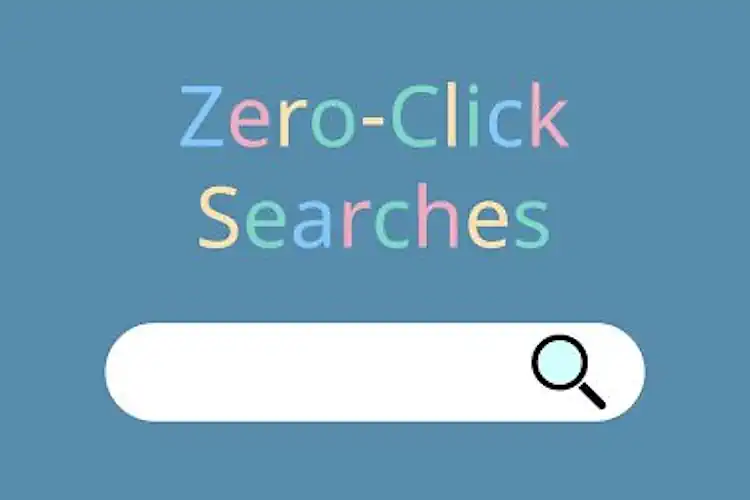
Understanding zero-click searches is crucial for businesses and SEOs. These searches impact your website traffic and user behavior, making it essential to adapt SEO strategies accordingly.
What are Zero-Click Searches?
Zero-click searches occur when users find the information they need directly on the search results page without needing to click on any of the listed websites. This can include features like featured snippets, knowledge panels, and instant answers.
Historical Context
In the early days of search engines, users would scan the list of search results and click on the website that seemed most likely to answer their query. However, as search engines have evolved, they’ve introduced features like featured snippets, knowledge panels, and instant answers to enhance user experience. Now, these features provide quick and convenient access to information directly on the search results page, reducing the need for users to click through to individual websites.
Current Trends
The number of zero-click searches has been steadily increasing. For example, common queries about the weather, unit conversions, and basic factual information often result in zero-click searches.
Unit Conversion:
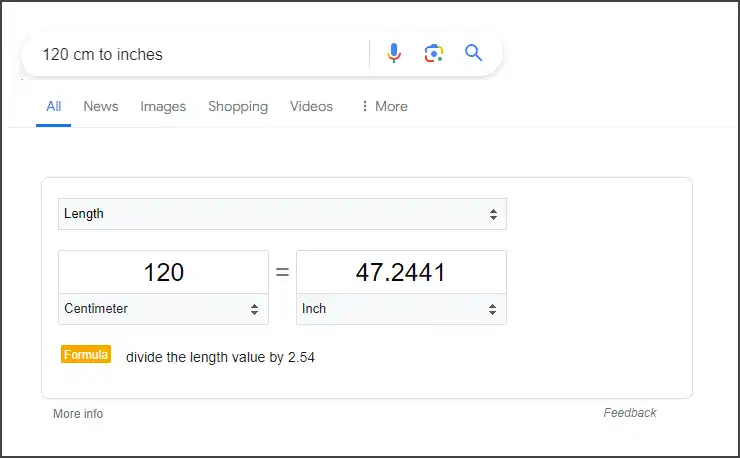
Are Zero-Click Features Used by All Search Engines?
While Google is the most prominent search engine utilizing zero-click features, other major search engines have also adopted similar features to enhance user experience.
Google is the leader in zero-click features, offering a wide range of tools like featured snippets, knowledge panels, instant answers, and local packs.
Bing also incorporates zero-click features, including rich snippets, knowledge graphs, and instant answers to provide users with quick information directly on the search results page.
Yahoo utilizes some zero-click features, primarily through its partnership with Bing, sharing similar rich snippets and instant answer capabilities.
DuckDuckGo focuses on privacy but still offers instant answers and other features designed to quickly address user queries without requiring clicks.
Baidu and Yandex, dominant in China and Russia respectively, have also integrated zero-click features, providing users with instant answers, knowledge panels, and rich snippets to improve search efficiency.
While the implementation and prevalence of zero-click features can vary among search engines, the trend is widespread across major platforms aiming to enhance the search experience.
Types of Zero-Click Search Features
Featured Snippets
Featured snippets are brief excerpts from web pages that answer the user’s query directly at the top of the search results. They are designed to provide quick answers, but this can impact click-through rates as users get the information they need without visiting the site.
Knowledge Panels
Knowledge panels appear on the right side of the search results page, offering comprehensive details about a topic. These panels aggregate information from various sources, providing a rich, informative experience without requiring further clicks.
Instant Answers
Instant answers provide immediate responses to factual queries, such as weather forecasts or sports scores. This feature satisfies user queries quickly, reducing the need to click on a website.
Weather Forcast:
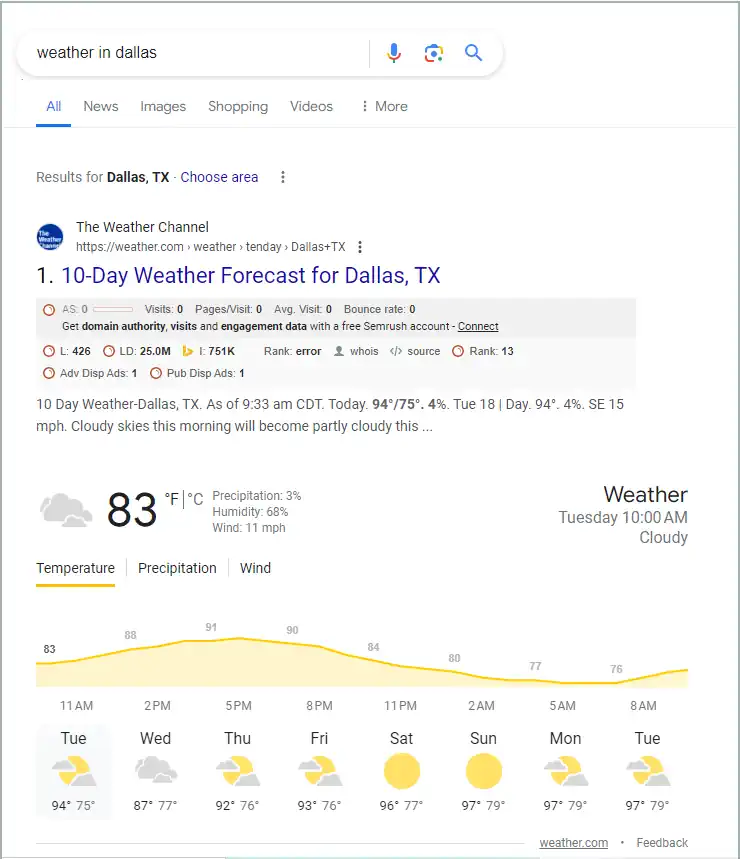
Local Packs
Local packs list local businesses, complete with maps, reviews, and contact information. This is particularly beneficial for local businesses looking to increase their visibility.
Rich Snippets
Rich snippets enhance search results with additional data like star ratings, prices, and event details. They make search results more attractive and informative but can also lead to zero-click searches.
Implications for Website Traffic
Positive Aspects
While zero-click searches can reduce direct traffic, they increase visibility and brand recognition. Being featured prominently in the search results can build trust and authority. Plus, there is always the chance that the user will want to click through to get more information.
Negative Aspects
The downside is reduced click-through rates and potential loss of website traffic. It becomes challenging to measure the true impact on conversions and user engagement.
Strategies for Adapting to Zero-Click Searches
Optimizing for Featured Snippets
To earn featured snippets, focus on answering common questions clearly and concisely. Use bullet points, numbered lists, and short paragraphs. Encourage users to click through by providing deeper insights and related content.
Leveraging Knowledge Panels and Rich Snippets
Ensure your information is accurate and comprehensive. Use schema markup and structured data to help search engines understand your content and display it in rich snippets and knowledge panels.
Enhancing Local SEO
While zero-click searches can impact many aspects of SEO, local SEO remains somewhat resilient. Users often need to click through to a business’s website to get the services they need. To maximize visibility and attract local customers, maintain up-to-date business information, encourage positive reviews, and use local keywords. Ensure your business is listed in relevant directories to enhance your presence in local packs.
Creating Engaging and In-Depth Content
Develop content that goes beyond what is displayed in zero-click features. Provide in-depth information, unique insights, and value that encourages users to visit your website for more details.
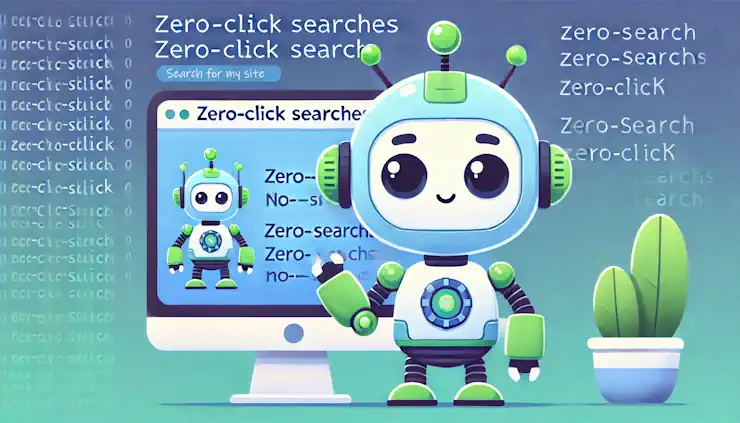
Identifying Your Site’s Presence in Zero-Click Features
To determine if your site appears in a featured snippet, knowledge graph, or other zero-click search features, use the following methods:
- Google Search Console: This tool provides insights into how your site performs in Google Search. Check the “Performance” report to see if your pages are receiving impressions and clicks from featured snippets or other rich results. Look for terms like “rich results” and “featured snippets” in the search appearance section.
- Google Analytics: While Google Analytics won’t directly tell you if your site has a featured snippet, you can monitor traffic changes to specific pages that might suggest increased visibility due to featured snippets or other rich results.
- SEO Tools: Tools like SEMrush, Ahrefs, and Moz can help identify if your site appears in featured snippets or other search features. These tools track keyword rankings and provide information on whether your site is featured in special search results.
- Manual Search: Conduct manual searches for your target keywords and see if your content appears in featured snippets, knowledge panels, or other rich results. This hands-on approach can give you a direct view of how your site is presented in search results.
- Structured Data Testing Tool: Use Google’s Structured Data Testing Tool to ensure your site’s schema markup is correctly implemented. Proper schema markup increases the chances of your content being featured in rich results.
By leveraging these tools and methods, you can effectively monitor and understand your site’s presence in zero-click search features.
Measuring and Analyzing Impact
To effectively track the impact of zero-click searches, use analytics tools like Google Analytics, Google Search Console, and other SEO software. Monitor key metrics such as impressions, click-through rates, and user engagement. Set up custom reports to analyze changes in organic traffic and user behavior. Pay attention to the performance of pages that often appear in zero-click features, such as those with high-ranking snippets.
By comparing the data before and after these features appear, you can better understand how zero-click searches are affecting your site. Use tools like SEMrush or Ahrefs to gain insights into keyword rankings and search visibility.
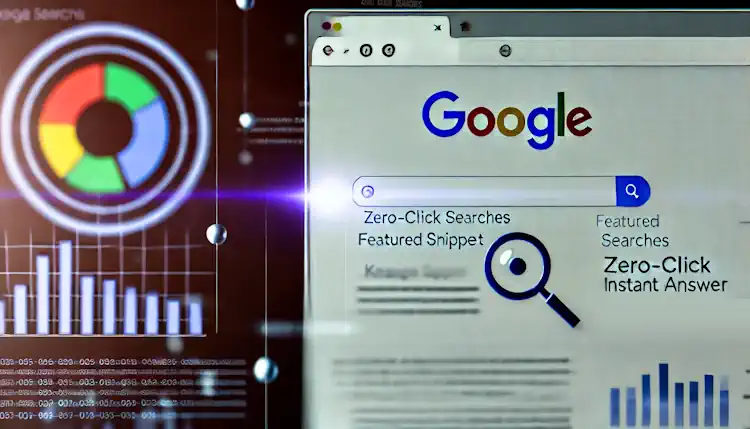
Future Outlook
As search engines continue to evolve, zero-click searches are likely to become more prevalent. Staying informed and adaptable in SEO strategies will be crucial for success.
Recap of Key Points
Zero-click searches are becoming more common, affecting how users interact with search results and websites. While they offer increased visibility, they can also reduce direct traffic.
Businesses and SEOs must continuously evolve and innovate to provide value to users, regardless of changes in search engine features. Understanding and adapting to zero-click searches is an essential part of this ongoing process.

